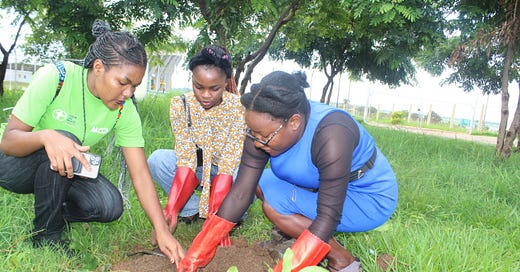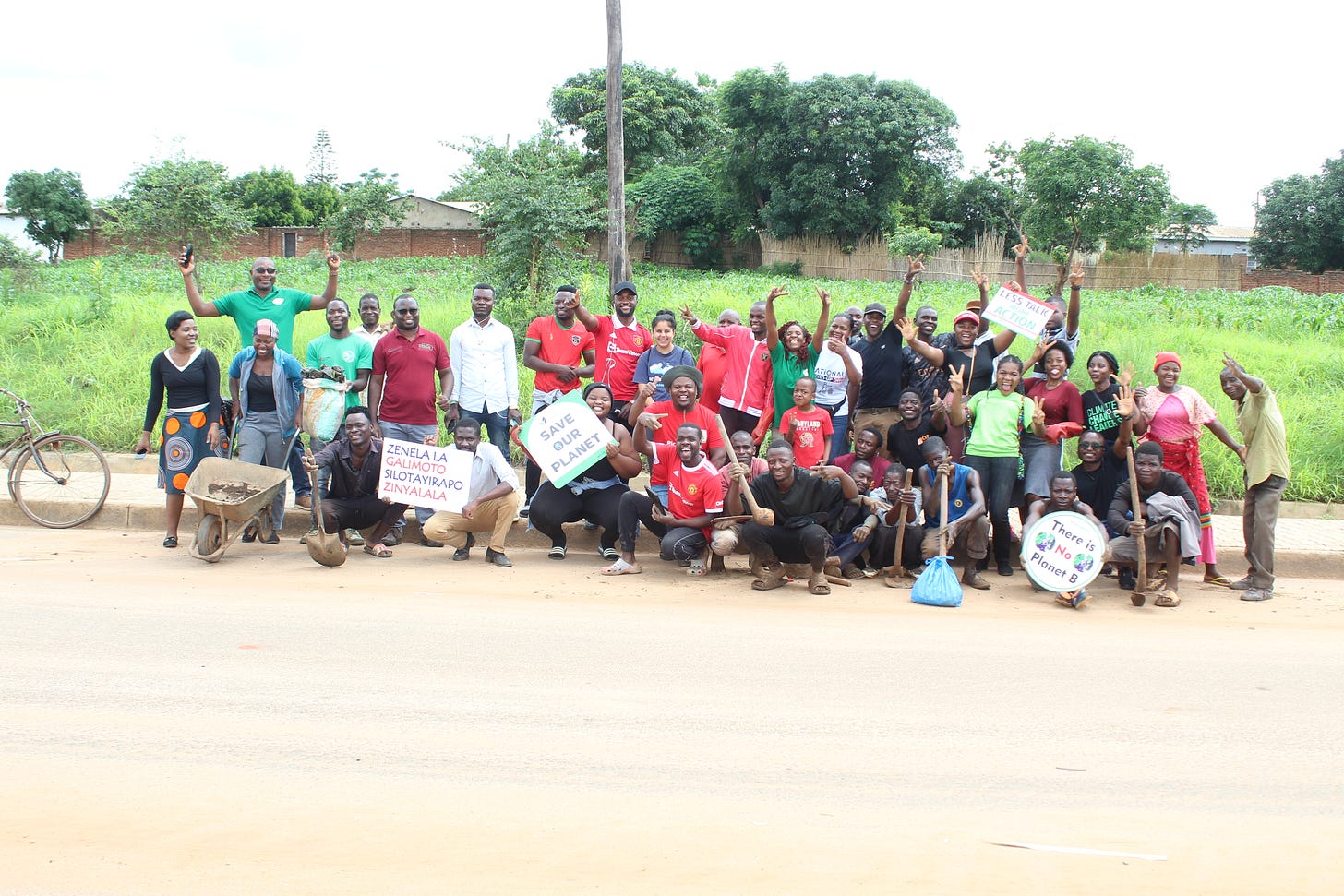Chilembwe Day Celebration Brings Together Politicians and Community to Plant Trees, Boost Lilongwe's Greening Efforts
The planting of the trees took nearly four hours and involved a sizable group of volunteers, including young people from various organisations and local environmentalists.
Malawi: The planting of 300 Natal mahogany trees, also known as Trichilia emetica, along a dual highway that connects to the presidential road at area 18 interchange to Bingu National Stadium on Chilembwe Day, a holiday observed in Malawi, boosted the Lilongwe greening initiative, writes Mathews Malata - Contributor.
The planting of the trees took nearly four hours and involved a sizable group of volunteers, including young people from various organisations and local environmentalists.
A number of unlikely allies were also brought together by the event, including the local MCP representative Alfred Jiya and DPP lawmaker Werani Chilenga, who is also the head of the parliamentary committee on climate change and the leader of the Malawi Parliamentary Conservation Caucus. They were both seen working together to plant trees.
Chilenga said, "Some political decisions have for too long contributed to the degradation of the environment and the disappearance of significant greenspaces, and it would be ideal for politicians to separate politics from conservation work and cooperate to undo the harm done to the environment."
Chilenga also urged the Lilongwe City Council to work with all parties interested in restoring the city's former splendour as a garden city.
He exhorted the Lilongwe City Council to stop working in isolation and work with everyone who is interested in bringing back the city's former splendour as a garden city.
As he said, "Our city is growing, and as a result, a sizable number of trees are being lost. To demonstrate that if we work together, we can still make a significant contribution to the welfare of our cities, we are offering an example today. We can only hope that the city council and other agencies will increase their cooperation in light of the previous incident when the contractor started removing Mbawa trees for the six-lane road project without an Environmental and Social Impact Assessment Report in place. Everyone needs to exercise caution because we don't want that to happen again."
Jiya commended the MPCC, Lilongwe Wildlife Trust, Movement for Environmental Action, and others for bringing the Lilongwe greening programme to his region.
Jiya acknowledged that there had previously been some misunderstanding regarding how to strike a balance between city growth and conservation initiatives, but he vowed to work with the local population, the city council, and the ministry of Climate Change and Natural Resources to clear up any confusion.
He said, "You know that we occasionally have incidents where certain unpatriotic people typically come at night to uproot the trees after planting. I will mobilise the community to ensure that these trees are safeguarded and cared for. We must work together to green our city. It shouldn't happen like that."
However, non-governmental organizations working in conservation have urged the city council to be proactive and coordinated if the Lilongwe greening programme is to be successful and long-lasting.
For instance, Dorothy Tembo Nhlema, director of programmes at Lilongwe Wildlife Trust and one of the campaign's main organisers, has requested that Lilongwe City Council establish clear guidelines for the initiative so that all parties willing to support it will easily be able to understand the kinds of trees needed in various areas and the budgets needed.
Nhlema invited additional businesses and people to express interest in similar initiatives.
The Movement for Environmental Action's Mala Kayira, a young environmentalist, emphasised the need for the city council to take action, enhance current greenspaces, and speed up efforts to reclaim the city's greenspaces that had been infringed upon or corruptly given to some developers.
Additionally, she invited youth to participate in initiatives to reclaim Lilongwe's lost green spaces.
The trees for planting were provided by the Lilongwe Botanical Gardens. The goal of the Lilongwe greening campaign, which was started in 2021, is to restore 800 hectares of the city's degraded land.





